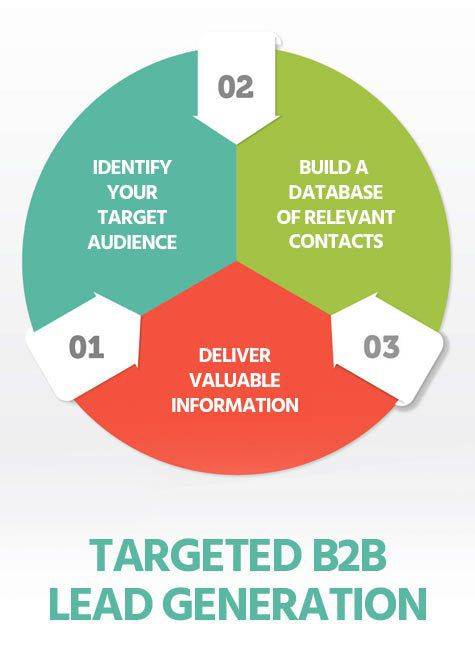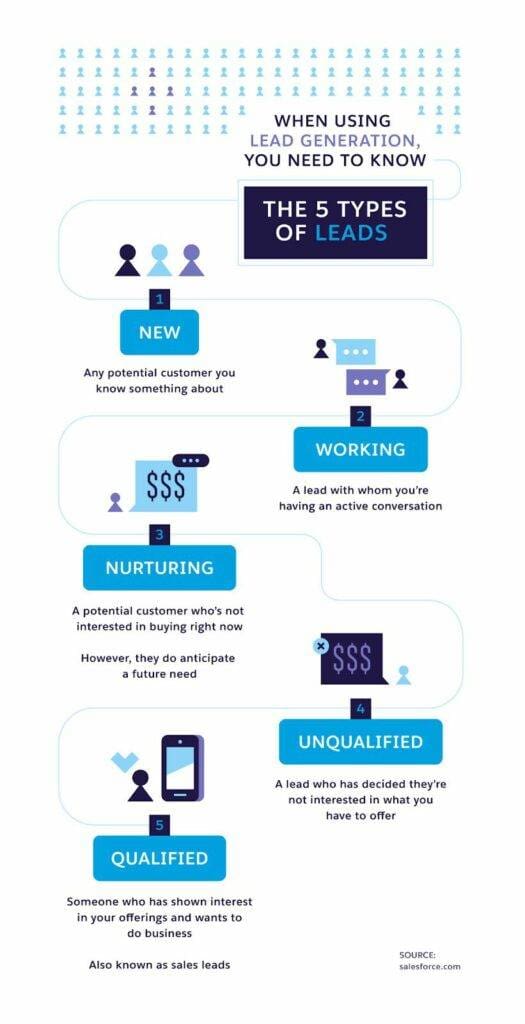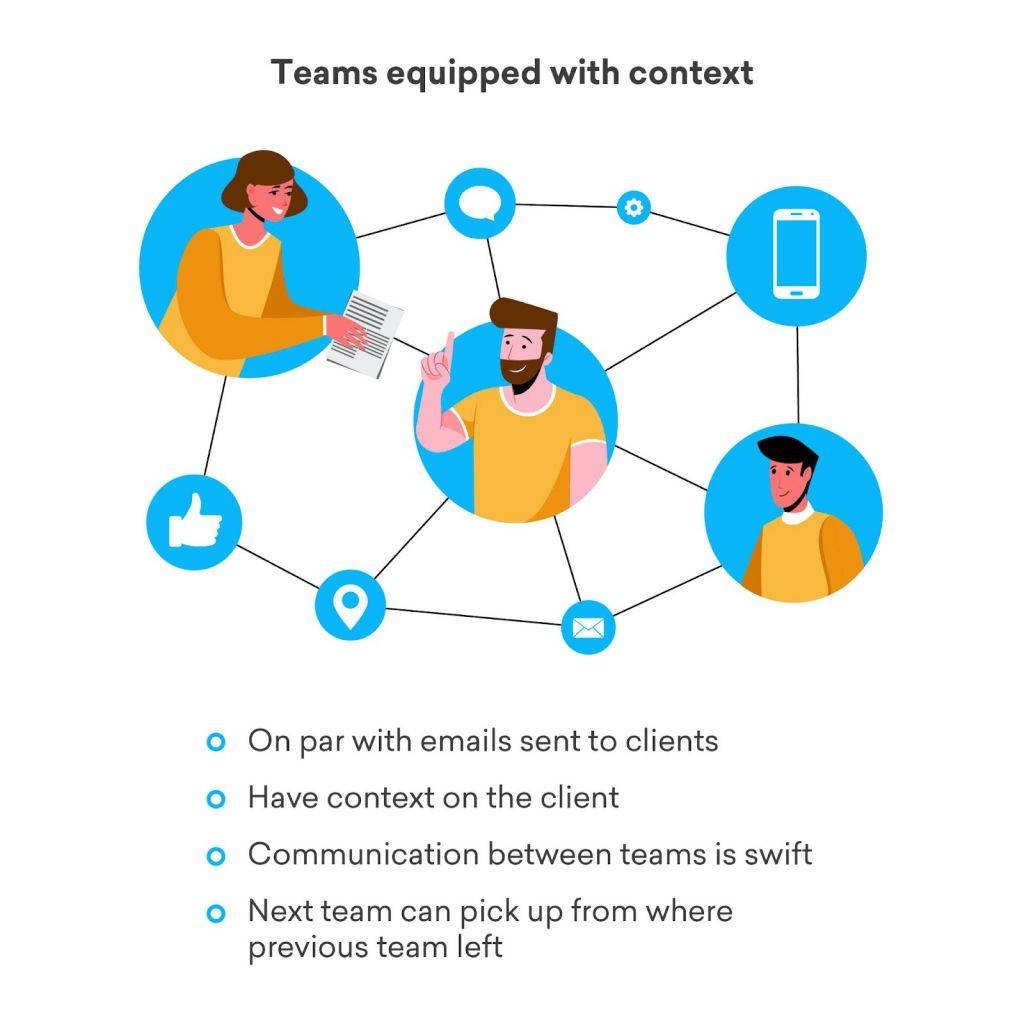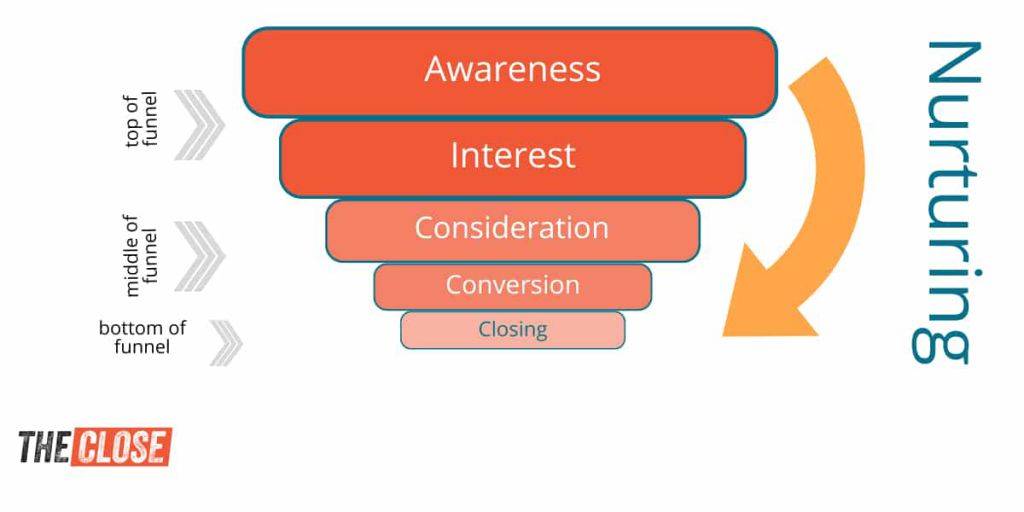
Source: staging2.clickback.com
Understanding your target audience
Identifying your ideal client and their needs
When it comes to lead generation for business coaches, understanding your target audience is key. Identifying your ideal client and their needs will help you tailor your marketing efforts to attract the right prospects. Here are a few steps to help you identify your ideal client:
- Research your past clients: Look at your previous client base and identify common characteristics among them. What industry are they in? What are their pain points and challenges?
- Conduct market research: Dive deeper into your target market by conducting market research. This will help you gather insights on the needs and preferences of your ideal client.
- Create buyer personas: Once you have gathered enough information, create buyer personas that represent your ideal client. These personas should include details such as demographics, goals, challenges, and motivations.
Defining your target market and demographics
Once you have identified your ideal client, defining your target market and demographics is important. This will help you narrow down your focus and tailor your marketing messages. Consider the following factors:
- Demographics: Define the key demographic characteristics of your target audience, such as age, gender, location, and income level.
- Psychographics: Understand the psychological and social aspects of your target audience. What are their interests, values, and behaviors?
- Industry and niche: Identify the specific industries and niches that align with your expertise and where your services can provide the most value.
By understanding your target audience and defining your target market and demographics, you can create targeted marketing campaigns that resonate with your ideal clients and generate quality leads for your business coaching services.
Building a strong online presence
In order to successfully reach your target audience as a business coach, it is essential to build a strong online presence. This allows you to showcase your expertise, attract potential clients, and establish yourself as a trusted authority in your industry. Here are two key strategies to consider:
Creating a professional website and branding
Having a professional website is crucial for any business coach. It serves as a hub where potential clients can learn more about your services, your background, and your approach to coaching. Consider the following tips when creating your website and branding:
- Keep your website design clean, modern, and easy to navigate, allowing visitors to find the information they need quickly.
- Use professional photographs and high-quality images that reflect your brand and the benefits of working with you as a business coach.
- Highlight client testimonials and success stories to build trust and credibility.
- Incorporate a clear call-to-action on each page, encouraging visitors to contact you or sign up for a consultation.
- Optimize your website for search engines by incorporating relevant keywords in your content and meta tags.
Utilizing social media platforms for marketing
In addition to having a website, it is important to utilize social media platforms to expand your reach and engage with your target audience. Here are some effective strategies for utilizing social media as a business coach:
- Identify the social media platforms that are most popular among your target audience, such as LinkedIn, Facebook, or Instagram.
- Create and share valuable content on a regular basis, such as blog articles, videos, or infographics, that address common challenges faced by your target audience.
- Engage with your audience by responding to comments and messages, and participating in relevant conversations and groups.
- Collaborate with other industry leaders or influencers to expand your reach and credibility.
- Use targeted ads and sponsored posts to reach a wider audience and drive traffic to your website.
By building a strong online presence through a professional website and effective use of social media, you can effectively reach your target audience as a business coach and grow your client base.
Content marketing strategies
Creating valuable and engaging content
Creating valuable and engaging content is key to reaching your target audience as a business coach. By providing useful and relevant information, you can establish yourself as an authority in your field and attract potential leads. Here are some content marketing strategies to consider:
1. Identify your target audience: Before you start creating content, you must clearly understand who your target audience is. This will help you tailor your content to their specific needs and preferences.
2. Develop a content strategy: A content strategy outlines the topics, formats, and channels you will use to reach your audience. It helps you stay focused and consistent in your content creation efforts.
3. Provide valuable insights and tips: Share your knowledge and expertise through blog posts, videos, podcasts, or infographics. Focus on solving common problems or addressing your target audience’s specific challenges.
4. Utilize SEO: Optimize your content for search engines by incorporating relevant keywords and meta tags. This will improve your chances of appearing in search results and attracting organic traffic.
5. Engage with your audience: Encourage comments, questions, and feedback on your content. Respond to comments and engage in conversations to build connections with your audience.
Using blogging and guest posting to reach your target audience
1. Start a blog: A blog is a great way to share your insights and advice with your target audience regularly. It allows you to establish your expertise, drive traffic to your website, and generate leads. Make sure to promote your blog posts through social media, email newsletters, and other marketing channels.
2. Guest post on relevant websites: Identify popular blogs or websites that cater to your target audience and offer to write guest posts. This allows you to tap into an existing audience and gain exposure to potential leads. Ensure your guest posts provide valuable information and include a call-to-action that directs readers to your website.
3. Collaborate with influencers: Identify influencers in your industry who have a large following and engage with them. Collaborating with influencers can help you reach a wider audience and establish credibility. This can be done through guest blog posts, interviews, or joint webinars.
Remember, the key to successful lead generation through content marketing is providing value and building relationships with your target audience.

Source: www.salesforce.com
Email marketing campaigns
Building an email list and capturing leads
Building an email list is essential for business coaches to reach their target audience and generate leads. Here are some effective ways to build your email list and capture leads:
- Offer valuable content: Create high-quality content such as ebooks, guides, or exclusive industry insights that your target audience will find valuable. Offer this content in exchange for their email address.
- Opt-in forms on your website: Place opt-in forms strategically on your website, including on the homepage, blog posts, and landing pages. These opt-in forms clearly communicate what subscribers can expect to receive by joining your email list.
- Lead magnets: Develop lead magnets such as free webinars, workshops, or video series that offer valuable information to your audience. Require individuals to provide their email address to access this valuable content.
- Social media promotion: Leverage your social media platforms to promote your email list and lead magnet offerings. Create compelling posts and ads that highlight the benefits of joining your email list.
Crafting compelling email campaigns to nurture leads
Once you’ve captured leads through your email list, crafting compelling email campaigns to nurture those leads and eventually convert them into clients is essential. Here are some tips for crafting effective email campaigns:
- Personalize your emails: Address your subscribers by name and tailor the content to their needs and challenges. Personalization helps build a connection and trust with your audience.
- Provide valuable content: Deliver valuable and actionable content in your emails that provides solutions to your audience’s problems. This content could include tips, strategies, case studies, or success stories.
- Segment your email list: Segment your email list based on different criteria such as industry, interest, or stage of their buyer’s journey. This allows you to send targeted emails that are relevant to each segment.
- Use persuasive copywriting: Write compelling subject lines and email content that captures attention and entices readers to open, read, and take action. Use a conversational tone, and focus on the benefits and outcomes your coaching services provide.
- Include clear call-to-actions (CTAs): Clearly state the action you want your subscribers to take, whether it’s scheduling a discovery call, signing up for a workshop, or downloading additional resources. Make your CTAs prominent and easy to follow.
Remember to regularly analyze the performance of your email campaigns, including open rates, click-through rates, and conversions. This data will help you refine and optimize your email marketing strategy to reach your target audience and generate valuable leads effectively.
Utilizing search engine optimization (SEO)
To effectively reach your target audience as a business coach, it is crucial to utilize search engine optimization (SEO) strategies. SEO helps improve the visibility of your website in search engine results, making it easier for potential clients to find you. Here are some key ways to optimize your website for search engines:
Optimizing your website for search engines
- Keyword optimization: Conduct keyword research to identify the terms and phrases your target audience is using to search for coaching services. Incorporate these keywords strategically throughout your website content, including in titles, headers, meta descriptions, and alt text for images.
- Quality content: Create informative and valuable content that addresses your target audience’s pain points and challenges. Regularly update your website with blog posts, articles, and resources that showcase your expertise and provide solutions to their problems.
- Mobile-friendly design: Ensure that your website is mobile-friendly and responsive. More and more people are using their smartphones and tablets to browse the internet, so optimizing your website for mobile devices is crucial for reaching your target audience.
- Page speed: Optimize your website’s loading speed to provide a better user experience. Slow-loading websites can lead to high bounce rates and lower search engine rankings. Compress images, minimize code, and utilize caching to improve your website’s performance.
Using keyword research and targeting to attract your target audience
- Keyword research: Conduct thorough keyword research to identify the keywords and phrases related to business coaching your target audience uses. Use keyword research tools like Google Keyword Planner or SEMrush to find relevant keywords with high search volume and low competition.
- Long-tail keywords: Target long-tail keywords, which are more specific phrases that have lower search volume but higher conversion rates. Long-tail keywords allow you to attract a more targeted audience that is specifically looking for the coaching services you offer.
- Content optimization: Once you have identified the relevant keywords, optimize your website content, including blog posts, landing pages, and service pages, by incorporating these keywords naturally. Ensure that the content remains valuable and informative to your target audience.
- Meta tags and headers: Optimize your meta tags, including title tags and meta descriptions, with relevant keywords to improve your website’s visibility in search engine results. Use headers (H1, H2, H3) to structure your content and include your target keywords in them to enhance SEO further.
By implementing effective search engine optimization strategies, you can increase your visibility and attract your target audience, positioning yourself as a trusted authority in the business coaching industry.
 Source: www.markettailor.io
Source: www.markettailor.io
Networking and partnerships
Collaborating with industry influencers and partners
Collaborating with industry influencers and partners can effectively reach your target audience as a business coach. By forming partnerships with individuals or organizations that have a similar target audience, you can tap into their existing network and gain access to potential clients. Here are some ways to collaborate with industry influencers and partners:
1. Guest Blogging: Offer to write guest blog posts for influencers or relevant websites in your industry. This allows you to showcase your expertise and reach a wider audience.
2. Joint Webinars or Workshops: Partner with an influencer or complementary service provider to host a joint webinar or workshop. This will give you the opportunity to showcase your knowledge and provide value to both your partner’s audience and yours.
3. Affiliate Marketing: Set up an affiliate program where influencers or partners can earn a commission for referring clients to you. This can incentivize them to promote your services and help you expand your reach.
Attending events and conferences to connect with potential clients
Attending events and conferences in your industry is another effective way to reach your target audience as a business coach. These events provide a platform for networking and connecting with potential clients. Here are some tips for making the most of these opportunities:
1. Research and Plan: Before attending an event, research the speakers, attendees, and topics to identify potential clients or connections. Make a plan of who you want to meet and what you want to achieve during the event.
2. Engage and Network: Be proactive in engaging with attendees and networking during the event. Approach people, introduce yourself, and ask questions to initiate conversations.
3. Speak or Host a Workshop: Consider speaking at the event or hosting a workshop if possible. This will give you the opportunity to showcase your expertise and position yourself as a thought leader in your industry.
4. Collect Contact Information: After connecting with potential clients or industry peers, make sure to collect their contact information. Follow up with them after the event to continue the conversation and explore potential business opportunities.
As a business coach, networking and partnerships are essential for reaching your target audience. Collaborating with industry influencers and attending events can expand your network, showcase your expertise, and connect with potential clients.
 Source: website-assets-fw.freshworks.com
Source: website-assets-fw.freshworks.com
Utilizing lead generation tools and platforms
Exploring CRM software for lead management
When it comes to lead generation, having the right tools and platforms can make a significant difference in your success. Customer Relationship Management (CRM) software is a valuable tool to help business coaches manage and nurture leads effectively. Here are some key benefits of utilizing CRM software for lead management:
- Centralized lead database: CRM software allows you to store all your leads’ contact information in one centralized database, making it easy to access and manage leads efficiently.
- Lead tracking and analytics: With CRM software, you can track the progress of your leads, monitor their interactions with your content, and gain valuable insights through analytics. This data helps you better understand your target audience and optimize your lead generation strategies.
- Automated workflows: CRM software enables you to automate certain tasks and workflows, such as sending follow-up emails or scheduling appointments. This automation saves time and ensures prompt and consistent communication with your leads.
- Lead segmentation and personalization: CRM software allows you to segment your leads based on various criteria, such as demographics, interests, or engagement levels. This segmentation enables you to tailor your marketing efforts and messaging to specific groups, increasing the chances of conversion.
Using lead capture forms and landing pages
Lead capture forms and landing pages are essential tools for capturing valuable information from your target audience and converting them into leads. Here are some tips for utilizing lead capture forms and landing pages effectively:
- Keep it simple: Make sure your lead capture forms are easy to fill out and require minimal information. People are more likely to provide their contact details if the process is quick and straightforward.
- Offer something of value: Provide an incentive for visitors to fill out your lead capture form, such as a free eBook, webinar, or consultation. This makes the exchange of information more appealing and increases the likelihood of conversion.
- Optimize for mobile devices: With more people accessing the internet through mobile devices, it’s crucial to ensure that your lead capture forms and landing pages are mobile-friendly. This improves the user experience and increases the chances of conversion.
- A/B test your forms and pages: Experiment with different elements, such as the layout, color scheme, or wording, to find the most effective form and page design. A/B testing allows you to optimize your lead generation efforts and maximize conversions.
By utilizing CRM software and incorporating lead capture forms and landing pages into your lead generation strategy, you can effectively reach and engage your target audience, ultimately driving business growth as a business coach.
Offering free resources and lead magnets
Creating valuable content upgrades and opt-ins
To effectively reach your target audience as a business coach, offering free resources and lead magnets can be a powerful lead generation strategy. By providing valuable content upgrades and opt-ins, you can attract potential clients and establish yourself as an authority in your industry. Here are a few tips on how to create compelling free resources and lead magnets:
- Identify your audience’s pain points: Research and understand your target audience’s challenges and pain points. This will help you create resources that address their specific needs.
- Create content upgrades: Content upgrades are bonus materials that provide additional value to your existing content. For example, if you have a blog post about “Effective Time Management Strategies,” you can offer a downloadable checklist or a video training as a content upgrade.
- Develop opt-in incentives: Opt-in incentives, also known as lead magnets, are valuable resources that you offer in exchange for your audience’s contact information. These can include ebooks, guides, templates, or mini-courses that provide actionable tips and insights.
Using lead magnets to attract and convert leads
Lead magnets are a great way to attract and convert leads into potential clients. Here are a few tips on how to effectively use lead magnets in your lead generation strategy:
- Promote your lead magnet strategically: Promote your lead magnet through various channels, such as your website, blog posts, social media platforms, and email marketing campaigns. Make sure to create compelling and enticing headlines to grab your audience’s attention.
- Optimize your landing pages: Create dedicated landing pages for your lead magnets to capture leads effectively. Optimize your landing pages with clear and concise copy, persuasive visuals, and a prominent call-to-action.
- Nurture your leads: Once you have captured leads through your lead magnets, nurturing them through email marketing campaigns or targeted follow-ups is important. Provide additional valuable content and build a relationship with your leads to encourage them to become paying clients.
By offering valuable free resources and lead magnets, you can attract and convert leads effectively. Remember to consistently create valuable content and optimize your lead generation strategy to reach your target audience as a business coach.
 Source: elementor.com
Source: elementor.com
Measuring and tracking lead generation success
Analyzing website analytics and performance metrics
To measure the success of your lead generation efforts as a business coach, it’s essential to analyze your website analytics and performance metrics. These tools can provide valuable insights into the effectiveness of your lead generation strategies. Some key metrics to consider include:
- Website traffic: Monitor the number of visitors to your website, as well as the sources of traffic (organic search, social media, referrals, etc.). This information can help you assess the reach and visibility of your lead-generation efforts.
- Conversion rate: Track how many website visitors convert into leads by submitting contact forms, downloading content, or signing up for your email list. Calculate your conversion rate by dividing the number of conversions by the total number of website visitors.
- Bounce rate: Bounce rate measures the percentage of visitors who leave your website after viewing only one page. A high bounce rate may indicate that your website is not engaging or relevant to your target audience.
- Engagement metrics: Assess how visitors interact with your website through metrics such as time spent on page, average session duration, and pages per session. These metrics can provide insights into the effectiveness of your website content and user experience.
Monitoring conversion rates and lead quality
In addition to website metrics, monitoring your conversion rates and the quality of your leads is crucial. Consider the following strategies:
- Lead scoring: Implement a lead scoring system to rank leads based on their level of engagement, demographics, and fit with your ideal client profile. This can help you identify high-quality leads and prioritize your follow-up efforts.
- Lead nurturing: Track how effectively you nurture leads through your email marketing campaigns, content marketing efforts, and personalized communication. Monitor metrics such as email open rates, click-through rates, and engagement with your content to gauge the effectiveness of your lead nurturing strategies.
- Feedback and testimonials: Collect feedback from your clients and ask for testimonials to gauge the impact and value of your coaching services. Positive testimonials and success stories from satisfied clients can be powerful tools for attracting new leads.
By regularly analyzing website analytics, monitoring conversion rates, and assessing lead quality, you can gain valuable insights into the success of your lead generation efforts as a business coach. Use these insights to refine your strategies, improve your targeting, and attract more high-quality leads.
 Source: theclose.com
Source: theclose.com
Building and maintaining relationships with leads
Nurturing leads through personalized communication
Building and maintaining relationships with leads is a crucial aspect of lead generation for business coaches. Once you have identified potential clients, it’s essential to nurture these leads through personalized communication. Here are some strategies to consider:
1. Personalized emails: Send tailored emails to your leads based on their specific needs and interests. Personalization can include addressing them by name and referencing previous conversations or interactions.
2. Content marketing: Provide valuable content, such as blog posts, videos, or webinars, that addresses your leads’ pain points and offers solutions. This can help establish your expertise and build trust with potential clients.
3. Social media engagement: Engage with your leads on social media platforms by commenting on their posts, responding to their questions, and sharing relevant content. This can help create a sense of community and connection.
Developing a strong follow-up strategy
Following up with leads in a timely and strategic manner is crucial for converting them into paying clients. Here are some tips for developing a strong follow-up strategy:
1. Prompt response: Respond to leads’ inquiries or requests for information as soon as possible. This demonstrates your professionalism and eagerness to help.
2. Multiple touchpoints: Use a multi-channel approach to reach out to leads, including phone calls, emails, and social media messages. This ensures that you stay on their radar and increases the chances of conversion.
3. Personalized offers: Tailor your offers to match the specific needs and pain points of each lead. This can involve providing customized coaching packages or discounts to encourage them to take the next step.
By building and maintaining relationships with leads through personalized communication and developing a strong follow-up strategy, business coaches can increase their chances of converting leads into long-term clients.



